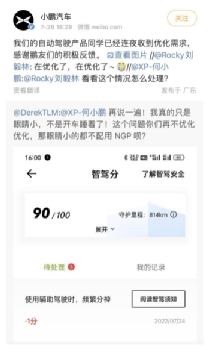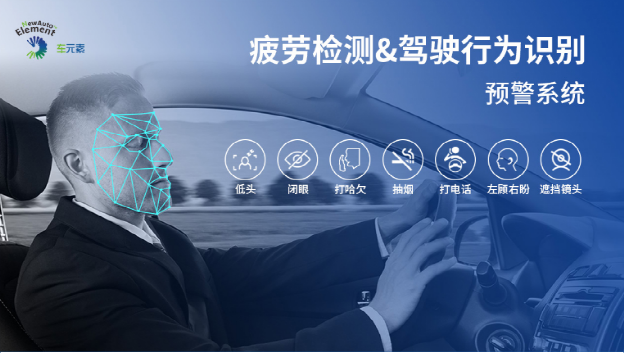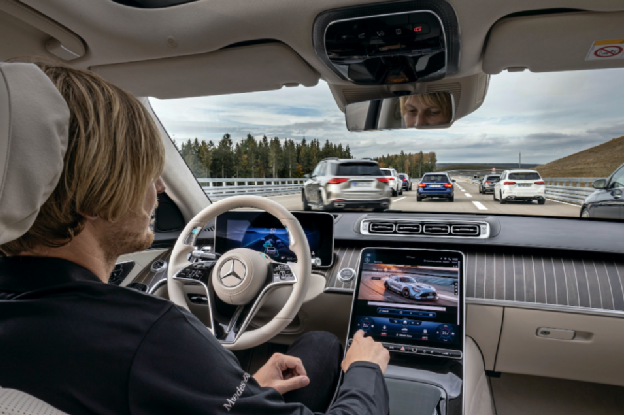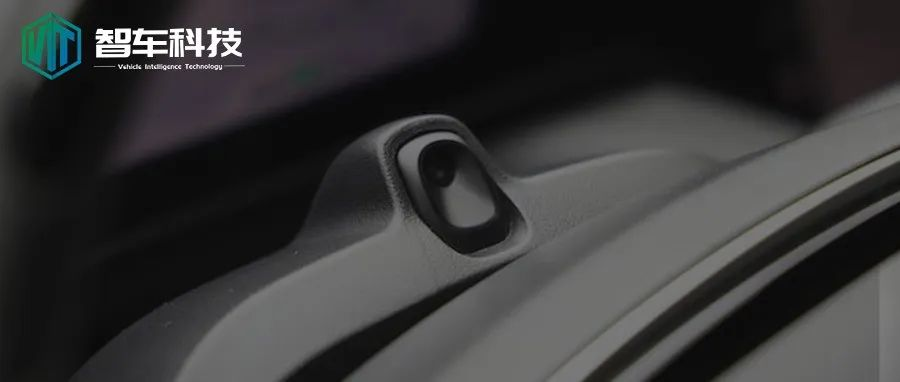Introduction
Xpeng Motors has recently hit the trending news again. A car blogger named “DerekTLM” exposed that he was penalized several times by Xpeng Motors’ “NGP” intelligent driving assistance function’s Driver Monitoring System (DMS) due to being judged by the system as “falling asleep while driving” as his eyes were too small. This has attracted a lot of attention from all parties involved.

DMS for Xpeng Motors is not just a warning for dangerous driving
DMS is actually a detection system for driver fatigue, distraction, and dangerous driving behavior. When abnormal driving behavior occurs, it will trigger an alarm.
At present, many domestic car models are equipped with DMS systems. The basic principle is to analyze the driver’s facial features. When the degree of opening of the eyes and the degree of opening of the mouth reach the preset threshold values, combined with torque sensors on the steering wheel, etc., it comprehensively judges whether it is necessary to trigger an alarm for the driver. Therefore, in this case, if the driver’s eyes are relatively small, it is very likely that the system will mistakenly judge that the driver’s eyes are closed, and this misjudgment is more likely to cause the vehicle’s DMS system to alarm.

Currently or in the future, high-level automated driving is still difficult to fully implement
Therefore, to a large extent, the driver still needs to take ultimate responsibility for the vehicle’s driving assistance system. That is to say, once any emergency occurs, the driver must take measures as soon as possible to avoid the serious consequences of the failure of the vehicle’s automatic driving/driving assistance functions.
Therefore, in this case, DMS is not only a safety configuration but also a tool for car companies to “monitor” and even “select” drivers. If there is a failure in identifying obstacles in front of the vehicle in the future driving assistance function, carmakers can check the DMS information at the first time to see if the driver has complied with related agreements: monitoring the entire driving process during the process of opening automatic driving/driving assistance.

Smart Driving Points cannot be ignored
If it is only a DMS system alarm, it actually does not matter much, and the driver can even choose to turn off this function on the car’s system.But what has really upset this blogger is that XPeng Motors is imitating Tesla, launching a so-called “intelligent driving score” system. In this scoring system, if the car owner scores high in the intelligent driving score, he or she can gain priority testing rights for advanced autonomous driving assistance functions, whereas if the score is low, not only will there be no opportunity to gain priority testing rights in the future, the manufacturer may even prevent such car owners from using advanced driving assistance functions.
According to the policy formulated by XPeng, it will use four indicators, including whether hands-free driving, timely takeover, fatigue driving, and distracted driving, to gauge or judge whether car owners are using driving assistance functions correctly. It starts with a baseline score of 100, with a 12-month update cycle, to score users.
The issue of data privacy requires high attention from XPeng
XPeng Motors did not shirk its responsibility in responding to this user’s public challenge, and provided feedback to the user in the first place, and optimized the system through colleagues in the field of autonomous driving, believing that the intelligent driving score of the user will be recalculated. However, for XPeng and other new powers, this incident is a case that requires high attention.
Compared with traditional automakers, the biggest disadvantage of new entrants must be the relatively limited experience in car manufacturing. Although many parts produced by new entrants can be purchased from the best domestic parts suppliers, various problems will also arise during the entire vehicle integration process. At this point, a large number of tests need to be done in advance to identify potential issues in order to avoid recalls caused by various design or manufacturing problems that could break out in the later stages.
Multinational automakers such as Volkswagen, Toyota, and General Motors have already established a very sophisticated testing process and testing methods, with the results of high-intensity durability testing becoming the biggest basis for many automakers to simulate customer use in the next decade. For new entrants, how to develop a verification process that matches their own design and manufacturing process still requires a lot of experiential accumulation through a large number of actual projects.Currently, it has become a consensus among all parties that “software-defined car” is the future. In this case, the proportion of software in the whole vehicle is increasing. Especially for traditional car companies, they need to refer more to the processes of domestic internet companies, and carry out large-scale testing on their software and applications before going to market.
XPeng is well-known for being a leader in the field of autonomous driving software in China: this is not only because its autonomous driving system can cover more scenarios, but also because its related software and hardware can have sufficient robustness to withstand various tests. In this regard, the role of large-scale testing in the early stages cannot be replaced. Only the more comprehensive the early testing is, the less likely problems will arise in the later stages. If everything has to be solved by after-sales service, the reputation of XPeng, as well as other companies, will be greatly affected.
This is a major problem that cannot be avoided and needs to be addressed for newcomers in the car manufacturing industry.
This article is a translation by ChatGPT of a Chinese report from 42HOW. If you have any questions about it, please email bd@42how.com.
